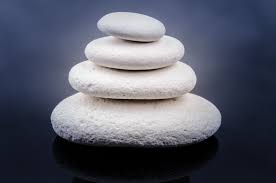 With its opportunities to share time with family and friends, take much needed breaks from the hurried pace of work and school, and pause to regroup before starting a new calendar year, the holiday season can truly be a most wonderful time of year. Unfortunately, the glittering portrayal of this season seems to regularly fall short of what most of us experience. The difference between heightened expectations and the cold reality of the year’s ending can easily leave a person feeling stressed, depressed, overwhelmed, and/or irritated. Here are a few suggestions on how to navigate the season, while extending emotional grace to yourself and others.
With its opportunities to share time with family and friends, take much needed breaks from the hurried pace of work and school, and pause to regroup before starting a new calendar year, the holiday season can truly be a most wonderful time of year. Unfortunately, the glittering portrayal of this season seems to regularly fall short of what most of us experience. The difference between heightened expectations and the cold reality of the year’s ending can easily leave a person feeling stressed, depressed, overwhelmed, and/or irritated. Here are a few suggestions on how to navigate the season, while extending emotional grace to yourself and others.
- Give yourself permission to have a less than perfect season. – After all, it’s the holidays. If your holiday is anything like the rest of ours, your or someone close to you will get a cold. One main/side dish will be singed – if not burned to a complete crisp. There will be at least one small to medium-sized argument, and you’ll probably run out of tape/paper/bows/batteries while wrapping presents. 😊 Welcome to the club! Now go enjoy the year’s end!
- Exercise! – Go for a walk, play with the kids, or take the long route to the neighbors house. Thirty minutes is great, but as little as 10-15 minutes can give your brain a boost. By releasing positive endorphins, you’ll improve your outlook and stress level – all while clearing your mind and burning off some of that last piece of cake!4
- Get some sun (or a light therapy box). – Aim for 20-30 minutes of awake time in sun or in front of a phototherapy light. Sunlight exposure works best, but if that isn’t available, time spent in front of a light box within the first waking hour of the day can be a helpful alternative. Look for a light box of 10,000 lux that minimizes as much UV light as possible. Just as with the sun, there’s no need to look directly into the light.5
- Keep your therapy appointment schedule. – It’s easily to rationalize missing a therapy session to get more done toward the year’s end. Unfortunately, one missed appointment can quickly turn into “Oh my gosh, it’s the new year already!” With all the events and interactions of the holidays, therapy sessions can provide vital opportunities to slow down, gain clarity, and revisit your overall goals for the season. Why would you ever choose to miss that?!
- Remember to take your medicines. – The holidays can be amazingly busy. Consider using a daily alarm on your cellphone to help you take your daily medicines on time… because they can’t work if they aren’t taken.
- Take your vitamins. – In addition to vitamins D and B (specifically B vitamins 3, 6, 9, and 12), studies also indicate that supplementing your diet with tryptophan, omega-3 fatty acids, coenzyme Q10, and vitamins E and A could help to improve your emotional well-being.8,1,6,9
- Avoid using alcohol or drugs to cope. – Although alcohol and substances can initially make a person feel less stressed or unhappy, there’s often an episode of anxiety or depression that manifests during clearance of the alcohol or drug from the person’s system.3,2 These changes in emotional state can place a person at greater risk of engaging in dangerous or uncharacteristic behaviors.7 In light of that, is it really worth ruining your holiday?
- Get your sleep. – When possible try to stick to your normal waking and sleeping hours. By protecting your sleep time, you’ll improve your ability to be more pleasant, patient, and even-tempered while awake.
- Enjoy a quiet time out. – It’s okay to need time away from the hustle and bustle of it all. If you find yourself being overstimulated by the commotion of the season, find a quiet place to take a few deep breaths and clear your head. As little as 5-10 minutes alone could have rejuvenating effects for your ability to interact calmly with others. (Give yourself bonus points if your quiet time includes your favorite cup of tea!)
- Avoid isolating yourself. – It’s one thing to take a bit of space to clear your head, it’s another to abandon interaction altogether. As long as mingling won’t be too triggering for your stress level, try to share positive interactions others. Even if it’s from the sidelines, the social time can help to lift your outlook during winter days.
- Celebrate the lives of lost loved ones. – For those grieving, this time of year can be especially challenging. Consider setting aside time to celebrate and be grateful for times shared with deceased loved ones. Friends and family can share favorite items from past gifts, memory boxes, photos, and videos of their loved one.
- Volunteer to help another person. – Sometimes the best way to forget the thing that is bothering you is by losing yourself in helping someone else.
- Be mindful of your entertainment. – Spend your time on things that will leave you feeling positive. Avoid any kinds of media (music, movies, news, social feeds, etc.) that you know will leave you feeling dissatisfied, anxious, or down. The season will fly by, so spend your time wisely.
- Maintain your relationship boundaries. – It’s okay to set limits on who you interact with during this time of year. If certain individuals simply aren’t able to contribute to your emotional well-being, give yourself permission to limit or forego interaction with them. After all, what better gift can you give yourself than starting off the new year with an emotionally healthier and happier you?
References:


